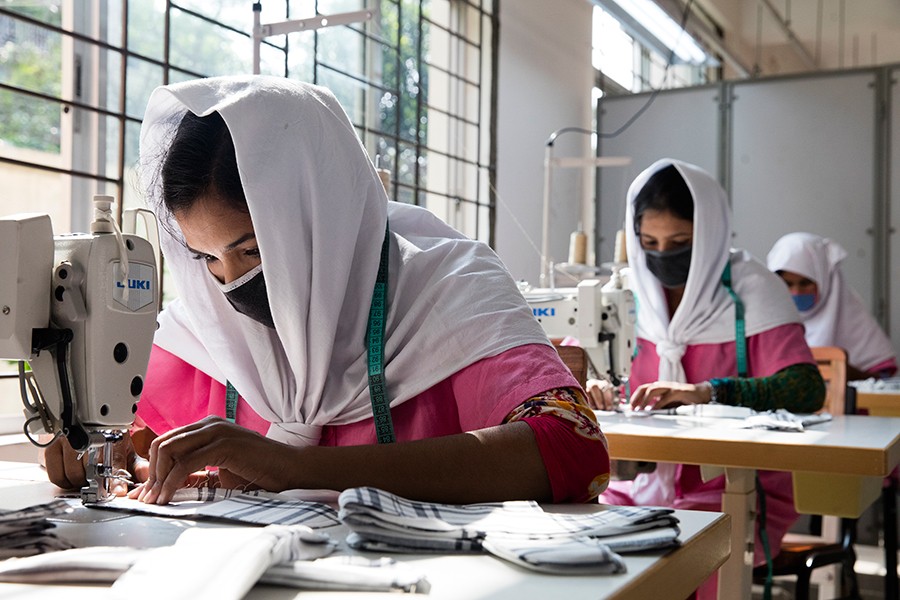The number of female readymade garment (RMG) workers taking up employment abroad has been on the rise in recent years, according to a recent study.
Jordan and Mauritius are their preferred destinations, the study said.
The propensity among women RMG workers to go overseas and earn more, however, is exposing them to harassment and deprivation, the study noted.
Since 2010 to 2018, a total of 49,404 garments workers have migrated to Jordan through government channel and out of them 48, 890 were women, it said. The number could be even higher, considering the migrants who went abroad through brokers.
The findings of the study titled 'Women Migration as Garment Worker: Human Insecurities: Desire to Safe and Fair Migration with Friendly Working Condition' launched at a seminar at National Press Club in the city on Thursday.
With the support of Global Alliance against Traffic in Women International Secretariat (GAATW-IS) Karmojibi Nari conducted the study through focus group discussions and interviews of some 28 respondents including returnee migrant garment workers (MGW), potential MGW and MGW who are currently living abroad.
Dr Pratima Paul Majumdar, president of Karmojibi Nari, chaired the seminar while Shirin Sharmin, a member of parliament, was present as the chief guest.
Rajekuzzaman Ratan, general secretary of Samajtantrik Sramik Front, and Rina Akter Jahan, principal of Bangladesh-German Technical Training Centre, among others, spoke at the meeting.
With the number of garment factories going up in Jordan, Bangladeshi women garment workers have huge potential there, Rahela Rabbani, director of Karmojibi Nari, said in her presentation on the findings.
Data showed that most of the respondents who migrated or want to migrate to overseas countries as RMG workers have already migrated to urban centres from rural areas seeking jobs in RMG units, she said.
Female garment workers are moving abroad due to automation in garment factories, absence of living wage and lack of promotion, occupational safety and social safety protection, and desire to earn more, she said.
Exploitation, discrimination and abuse are still common ordeals faced by women migrant workers both within Bangladesh and overseas, she said.
One of the major sources of exploitation at the pre-departure stage is the illegal practices adopted by the brokers or social networks who channelise women overseas by making false promises of lucrative job opportunities, the study revealed.
Women's lack of access to reliable information and source make them easy victims of brokers who trap them into deception and indebtedness, the study showed.
The Karmojibi Nari came up with eight-point recommendations for safe and fair migration that included development of an efficient mechanism for proper information with affordability and accessibility by the female garment workers.
It also suggested introduction of migration information centre at sub-district level, pro-active role by Bangladesh Labour Attache Consulate in destination countries, database of migrant workers and regular contact with them, and government bilateral arrangement for ensuring their rights in destination countries.


